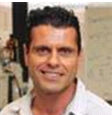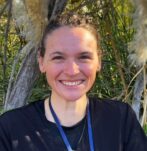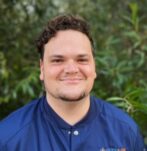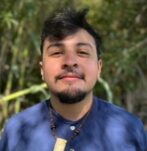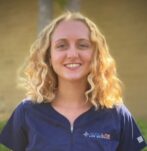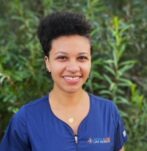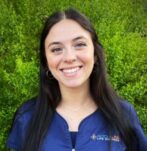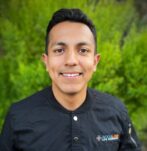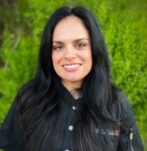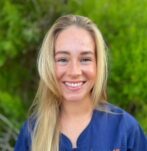Overview
Policy
This policy implements federal disclosure regulations and requirements pertaining to the objectivity in research issued by the Public Health Service (PHS) in 42 CFR Part 50 and 45 CFR Part 94. The goal of this policy is to assure the objectivity with which research projects are designed, conducted, and reported. The California Medical Innovations Institute, Inc. (the Institute), has the responsibility to manage, reduce, or eliminate financial conflicts of interest that occur between an Investigator's personal financial interests and their Institutional Responsibilities. This policy sets forth regulations, requirements, and procedures that each Investigator who is planning to participate in, or is actively participating in PHS-funded research, must follow.
Applicability
This policy applies to research projects for which the Institute submits an application to, or receives research funding from the PHS. For purposes of financial disclosure only, this policy covers the Investigator’s spouse and dependent children and does not apply to Phase I Small Business Innovation
Research (SBIR) or Small Business Technology Transfer (STTR) applications. Subrecipients who are named in PHS-funded research must also be in compliance with the PHS regulation prior to the execution of the Institute’s Consortium Agreement and the expenditure of funds.
Definitions
Financial Conflict of Interest (FCOI): A Significant Financial Interest (SFI) that could directly and significantly affect the design, conduct, or reporting of the PHS-funded research.
Financial Interest: Anything of monetary value, whether or not the value is readily ascertainable.
Institutional Responsibilities: An Investigator’s professional responsibilities on behalf of the Institute, include, but are not limited to, activities such as; research, research consultation, teaching, Institutional committee memberships, and service on panels such as Institutional Review Boards (IRB), Institutional Animal Care & Use Committee (IACUC) Data and Safety Monitoring Boards, Scientific Advisory Boards (SAB).
Investigator: The Principal Investigator and any other person, regardless of title or position (Faculty, Staff Scientists, Postdoc, etc.), who are eligible to submit grant applications on behalf of the Institute or who will be responsible for the design, conduct, or reporting of research or educational activities funded or proposed for funding by the PHS.
Management Plan: A plan that is created by the Institute that will specify the actions that have been taken and/or will be taken to manage an identified FCOI.
Significant Financial Interest (SFI): A financial interest consisting of one or more of the following interests of the Investigator and those of the Investigator’s spouse and dependent children that reasonably appears to be
related to the Investigator’s Institutional Responsibilities:
- Publicly Traded Entity: A Significant Financial Interest exists if the value of any remuneration received from the entity in the twelve months preceding the disclosure and the value of any equity interest in the entity as of the date of disclosure, when aggregated, exceeds $5,000. For purposes of this definition, remuneration includes salary and any payment for services not otherwise identified as salary (e.g., consulting fees, honoraria, paid authorship); equity interest includes any stock, stock option, or other ownership interest, as determined through reference to public prices or other reasonable measures of fair market value;
- Non-Publicly Traded Entity: A Significant Financial Interest exists if the value of any remuneration received from the entity in the twelve months preceding the disclosure, when aggregated, exceeds $5,000, or when the Investigator (or the Investigator’s spouse or dependent children) holds any equity interest (e.g., stock, stock option, or other ownership interest); or
- Reimbursed or Sponsored Travel: Investigators must also disclose the occurrence of any reimbursed or sponsored travel (i.e., that which is paid on behalf of the Investigator and not reimbursed to the Investigator so that the exact monetary value may not be readily available), in the twelve months preceding the disclosure, that reasonably appears to be related to their Institutional Responsibilities; provided, however, that this disclosure requirement does not apply to travel that is reimbursed or sponsored by a Federal, state, or local government agency, an institution of higher education as defined at 20 U.S.C. 1001(a), an academic teaching hospital, a medical center, or a research institute that is affiliated with an institution of higher education.
- Intellectual Property Rights and Interests: Upon receipt of income, if aggregated value of income is received exceeds $5,000 during the twelve months preceding the disclosure related to such rights and interests (patents, copyrights, etc.) that are paid directly to the Investigator; not Intellectual Property owned by the Institute.
- Significant Financial Interest Exclusions: The term Significant Financial Interest does not include the following types of financial interests: salary, royalties, or other remuneration paid by the Institute to the Investigator if the Investigator is currently employed or otherwise appointed by the Institute, including intellectual property rights assigned to the Institute and agreements to share in royalties related to such rights; income from investment vehicles, such as mutual funds and retirement accounts, as long as the Investigator does not directly control the investment decisions made in these vehicles; income from seminars, lectures, or teaching engagements sponsored by a Federal, state, or local government agency, an institution of higher education as defined at 20 U.S.C. 1001(a), an academic teaching hospital, a medical center, or a research institute that is affiliated with an institution of higher education; or income from service on advisory committees or review panels for a Federal, state, or local government agency, an institution of higher education as defined at 20 U.S.C. 1001(a), an academic teaching hospital, a medical center, or a research institute that is affiliated with an institution of higher education.
Subrecipients: A relationship when federal funds flow down from or through an awardee institution to another individual or entity where the subrecipient will be conducting a substantive portion of the PHS-funded research project and who will be accountable to the awardee institution for programmatic outcomes and compliance matters. This may also include; subgrantees, consortium participants, collaborators, or consultants.
Investigator Responsibilities
An Investigator who is planning to participate in or is actively participating in PHS-funded research is responsible for:
1. Complying with the Institute’s FCOI policy and procedures;
2. Disclosing their known Significant Financial Interests (SFI) and those of their spouse and dependent children that reasonably appear to be related to the Investigator’s Institutional Responsibilities during these intervals:
- On an annual basis and
- At the time of application for PHS-funded research using the Institute’s Application Routing Form; and
- Within 30 days of discovering or acquiring a new Significant Financial Interest that was not previously disclosed in the original disclosure statement.
- The disclosure process will be administered through the Office of Grants & Contracts.
3. Disclosing any known SFIs in a timely manner, and if a SFI is determined to represent a FCOI, complying
with the Institute’s Management Plan in order to manage the identified or potential FCOI.
4. Disclosing all sponsored travel paid for/reimbursed by a for-profit, commercial, professional society, or non-profit entity that is not associated with an institution of higher education, in the twelve months preceding the disclosure, that reasonably appears to be related to the Investigator's Institutional Responsibilities. This can be accomplished during the annual FCOI disclosure process in October. The disclosure information required will include: the purpose of the trip, the identity of the sponsor/organizer, the destination, and the duration.
5. Completing Institute provided FCOI Training and receiving certification of completion prior to engaging in PHS-funded research at least every 4 (four) years and as soon as possible, as directed by the Institute, when any of the following circumstances apply:
- If the Institute revises its FCOI policy and procedures in any manner that affects the requirements of Investigators;
- If an Investigator is new to the Institute; or
- If the Institute finds that an Investigator is not in compliance with the Institute’s FCOI policy, procedures, or Management Plan.
The FCOI regulation does not require Investigators to disclose the following financial interests;
- Salary, royalties, or other remuneration paid by the Institute to the Investigator if the Investigator is currently employed or otherwise appointed by the Institute, including intellectual property rights assigned to the Institute and agreements to share in royalties related to such rights;
- Intellectual Property Rights assigned to the Institute and agreements to share in royalties related to such rights;
- Income from investment vehicles, such as mutual funds and retirement accounts, as long as the Investigator does not directly control the investment decisions made in these vehicles;
- Income from seminars, lectures, teaching engagements, or service on an advisory committees or review panels sponsored by or for a Federal, state, or local government agency, an institution of higher education as defined at 20 U.S.C. 1001(a); an academic teaching hospital, a medical center, or a research institute that is affiliated with an institution of higher education.
Institute Responsibilities
Each of the Institute’s Responsibilities mentioned below is explained in greater detail within the Institute’s Financial Conflict of Interest Policy. Some of the Institute’s administration responsibilities include:
- Developing and maintaining an up-to-date FCOI policy;
- Informing each Investigator of the Institute's FCOI policy and of the Investigator's responsibilities;
- Administering the disclosure process for Investigators’ SFIs and those of their spouse and dependent children;
- Administering and documenting PHS FCOI Training as required for each eligible Investigator;
- Ensuring subrecipients who are named in PHS-funded research are in compliance with the PHS regulation prior to the execution of the Institute’s Consortium Agreement and the expenditure of funds;
- Reviewing disclosure statements to determine whether an Investigator’s SFI is a potential or actual FCOI, developing a Management Plan if necessary, and monitoring Investigator compliance when a Management Plan has been implemented;
- Making the Institute’s FCOI policy publicly accessible through the Institute’s Web site;
- Making a FCOI publicly accessible through the Institute’s Web site only if the FCOI is currently part of an ongoing Management Plan;
- Submitting the required report(s) through the eRA Commons for any identified and Institute managed FCOI.
Non-Compliance
If an Investigator fails to comply with the Institute’s FCOI policy, procedures, or Management Plan, the Institute will complete within 120 days of determining noncompliance;
- A retrospective review of the Investigator’s activities and the PHS-funded research project,
- Document the Institute’s methodology of reviewing the SFI(s), and
- Document the Institute’s determination as to whether any PHS-funded research, or portion thereof, conducted prior to the identification and management of the FCOI was biased in the design, conduct, or reporting of such research.
If bias is found, the Institute will submit a mitigation report to the PHS, that will address the impact of the bias on the PHS-funded research project and the actions the Institute has taken to mitigate the bias.
If the failure of an Investigator to comply with the Institute’s FCOI policy, procedures, or Management Plan appears to have biased the design, conduct or reporting of the PHS-funded research, the Institute will promptly notify the PHS of the corrective action taken or to be taken.
Enforcement and Sanctions
All Investigators who are subject to the Institute’s FCOI policy and procedures are expected to comply with it fully and promptly. Violation of the Institute’s FCOI policy and procedures may result in disciplinary actions as deemed appropriate by the Institute.
